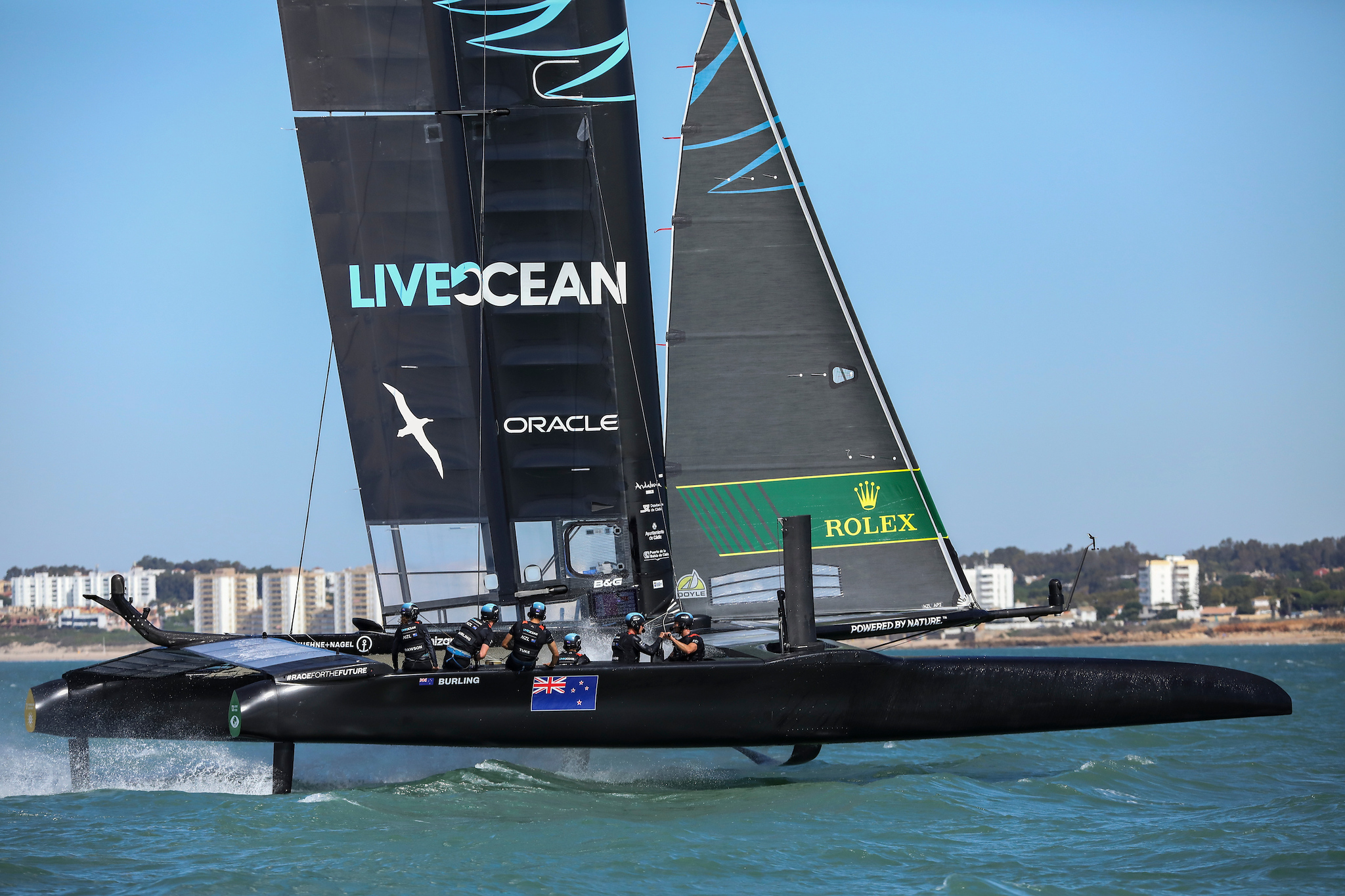
Up on its foils at speed: The New Zealand F50 catamaran with a Live Ocean Antipodean Albatross silhouette on its wingsail
SailGP
A silhouette of a Nationally Critical and globally Endangered Antipodean Albatross (Toroa) appeared on the wingsail of New Zealand’s entry in the SailGP races held last month in Spain’s Cádiz, as “a symbol of the team’s commitment to shining a spotlight on the plight of the Antipodean Albatross and working to stop their freefall to extinction.” The New Zealand F50 catamaran (which can reach speeds of 50 knots – over 90 km/h) was given the name Amokura, the Maori word for the Red-tailed Tropicbird Phaethon rubricauda.
SailGP’s Albatross: a Live Ocean video
Amokura crew members Peter Burling (helm) and wing trimmer Blair Tuke (who are Olympic gold medallists and America’s Cup champions) founded Live Ocean, a marine conservation organisation that supports the long-term monitoring programme designed to track Antipodean Albatross flight paths to understand where they overlap with fishing fleets. The event in Spain was won by Australia, with New Zealand winning one of the fleet races, finishing the regatta in fifth position out of eight competitors.
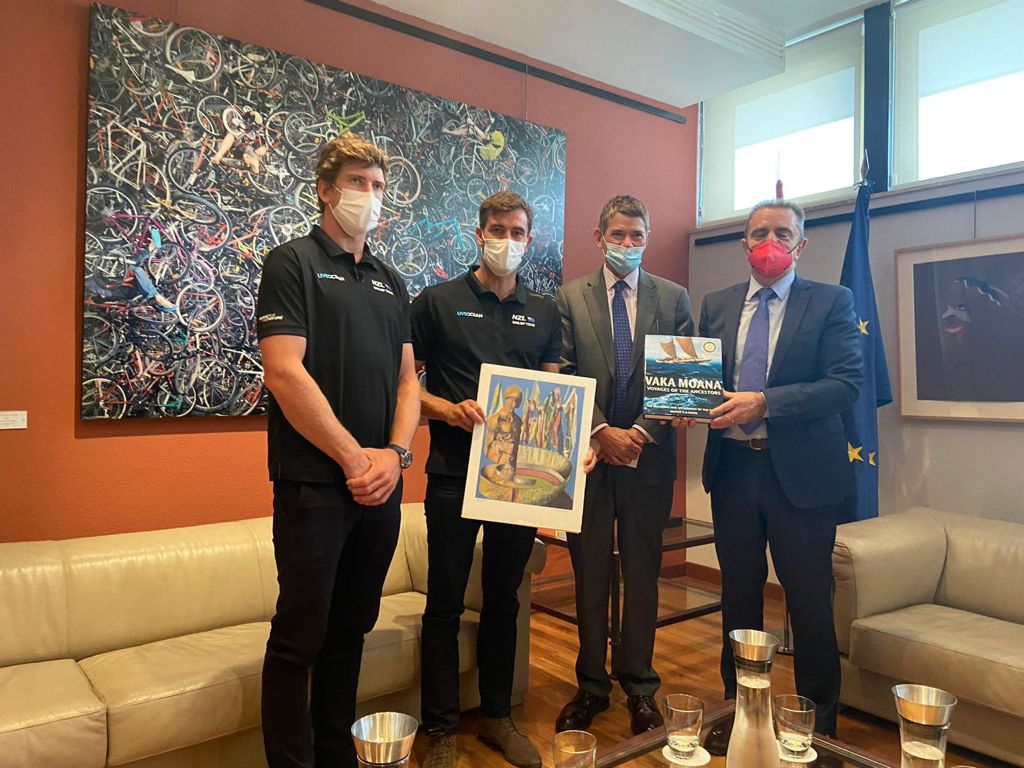
From left: Peter Burling, Blair Tuke, Nigel Fyfe, New Zealand Ambassador to Spain and Jose Manuel Franco, Spanish Secretary of State for Sport
On the eve of racing in Cádiz, Burling and Tuke joined New Zealand Ambassador to Spain Nigel Fyfe at SailGP’s Champions for Change forum where they shared the story of founding Live Ocean and their first project on racing to save the Antipodean Albatross from extinction. Champions for Change is SailGP’sleadership programme where leaders and sustainability champions talk about their approach to tackling the climate crisis and share valuable insights and learnings. Burling and Tuke’s role in using the power of sport to shine a light on the plight of the Antipodean lbatross has seen them become a symbol for the threats many albatrosses and seabirds face at sea.
In June the leaders of Spain and New Zealand, President Pedro Sánchez and Prime Minister Jacinda Ardern, declared their commitment that the two countries would work together on seabird conservation, and in particular they would develop an agreement by the time of the Spain Sail Grand Prix in Cadíz, for the better protection of the albatrosses and petrels of the Southern Ocean.
/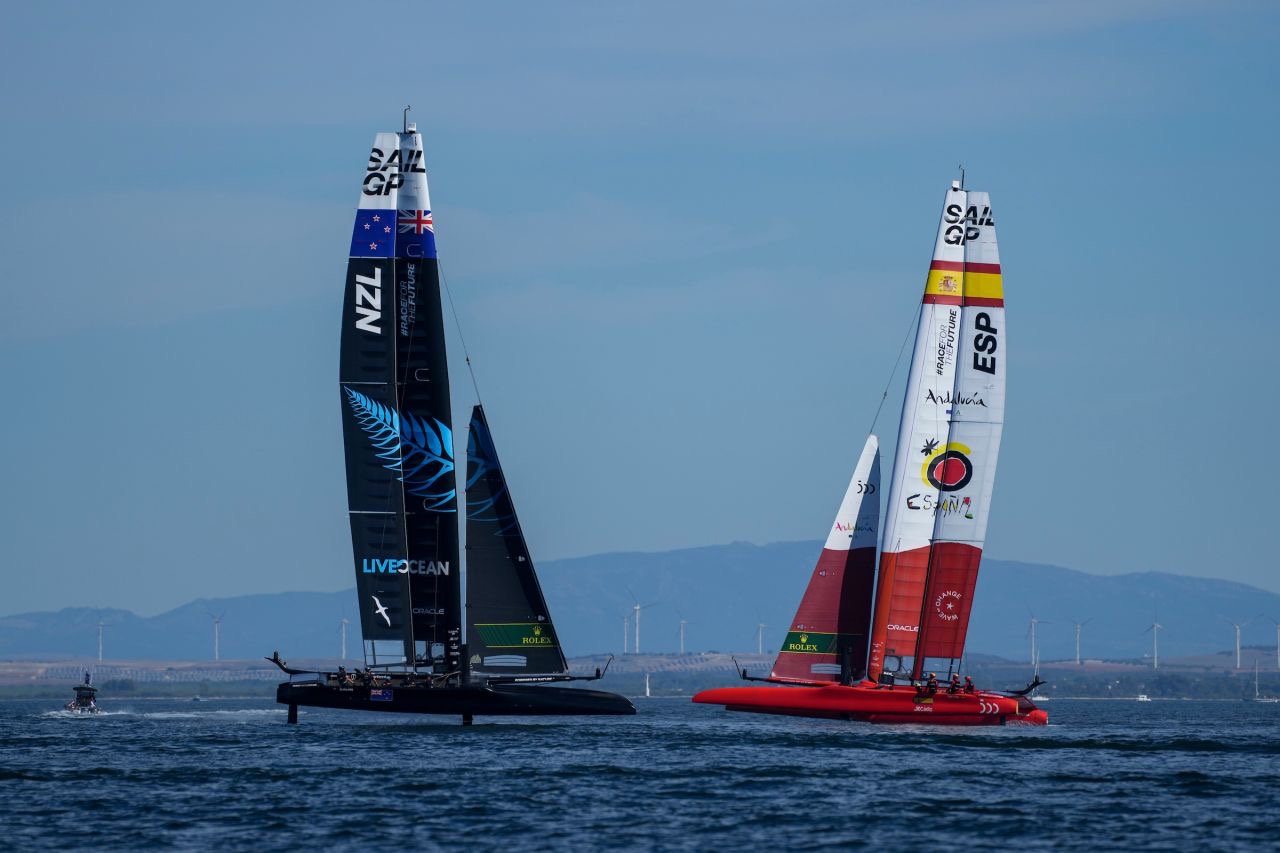
New Zealand races against Spain in Cádiz
New Zealand Ambassador to Spain Nigel Fyfe confirmed at the Champions for Change event that work on the agreement was completed and would be signed later this year. Fyfe said: “This is a tangible commitment to ensure our fishing boats follow best practices to avoid the capture of seabirds in the southern fisheries. Our two countries will go out and work with other countries involved in that fishery to ensure those best practices are widely followed. This wouldn’t have happened without SailGP providing this moment of focus and without SailGP’s commitment through Champions for Change to lead by example and to invite others to seize the opportunity. It wouldn’t have happened without the commitment of Pedro Sánchez and Jacinda Ardern. And it wouldn’t have happened without the leadership and determination of Pete Burling and Blair Tuke.”
View a second video by Live Ocean entitled The Race to Save the Antipodean Albatross and access earlier posts in ACAP Latest News about Live Ocean’s work for Antipodean Albatrosses here.
BOTY2021
Back in New Zealand, the official winner of the annual Bird of the Year competition (BOTY2021) was announced earlier this week and surprisingly it's not a bird at all, it is a bat that was allowed into the competition by the organizers. The Long-tailed Bat Chalinolobus tuberculatus (Maori mane Pekapeka-tou-roa) is one of only two bats to occur in New Zealand. These two endemic species are in fact, the country’s only non-introduced mammals that are not of marine origin (such as are seals). The Long-tailed Bat received the highest number of BOTY votes ever and won by 3000 votes, pushing the Antipodean Albatross, supported by Team Toroa, down to fifth place. Hopes had been raised that this year the albatross would do better than last year’s second place, but in the event it slipped off the podium.
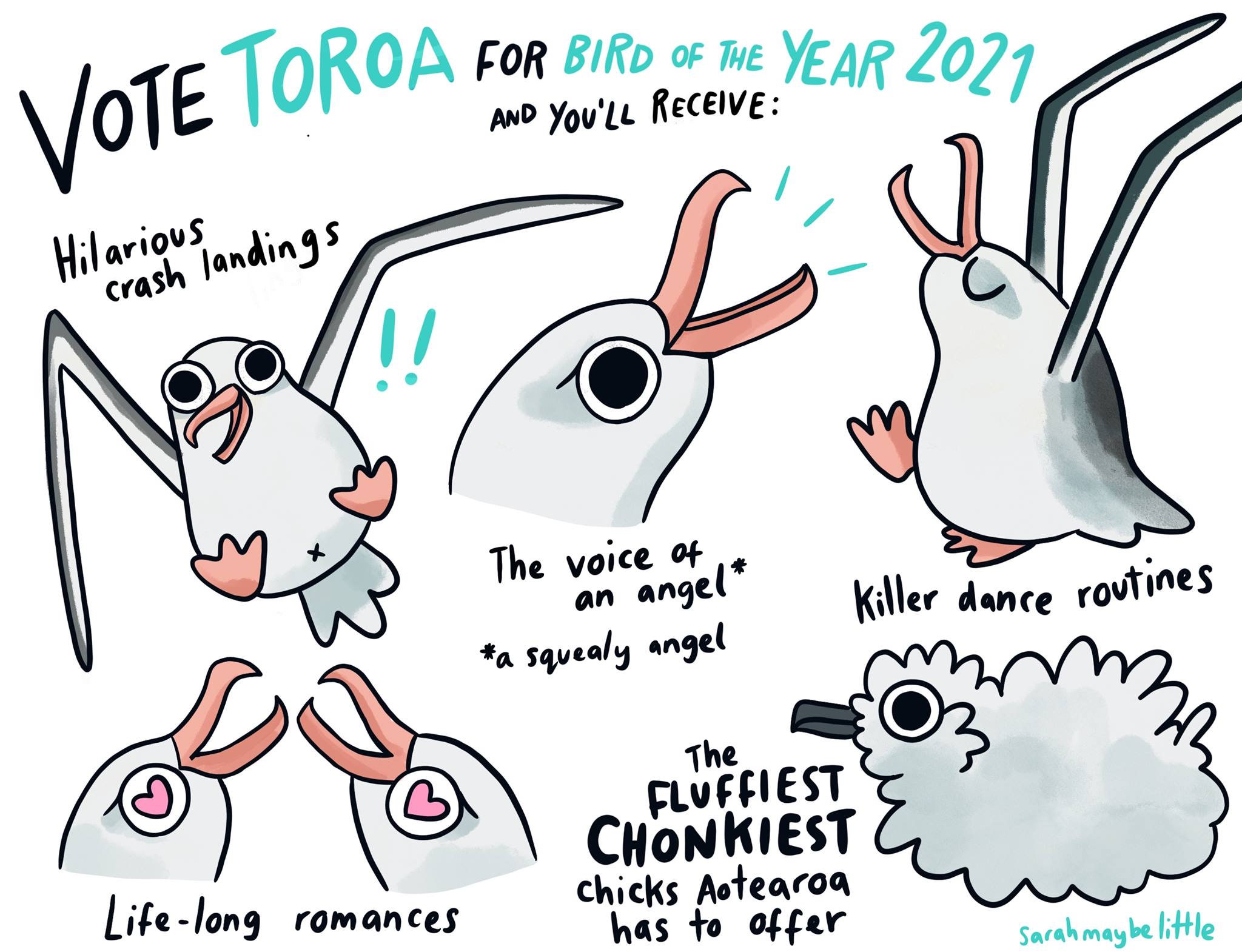
However, public awareness of the plight of the Antipodean Albatross has been raised by both events that featured it, as has the recent co-production by ACAP and New Zealand’s Department of Conservation of an infographic for the bird
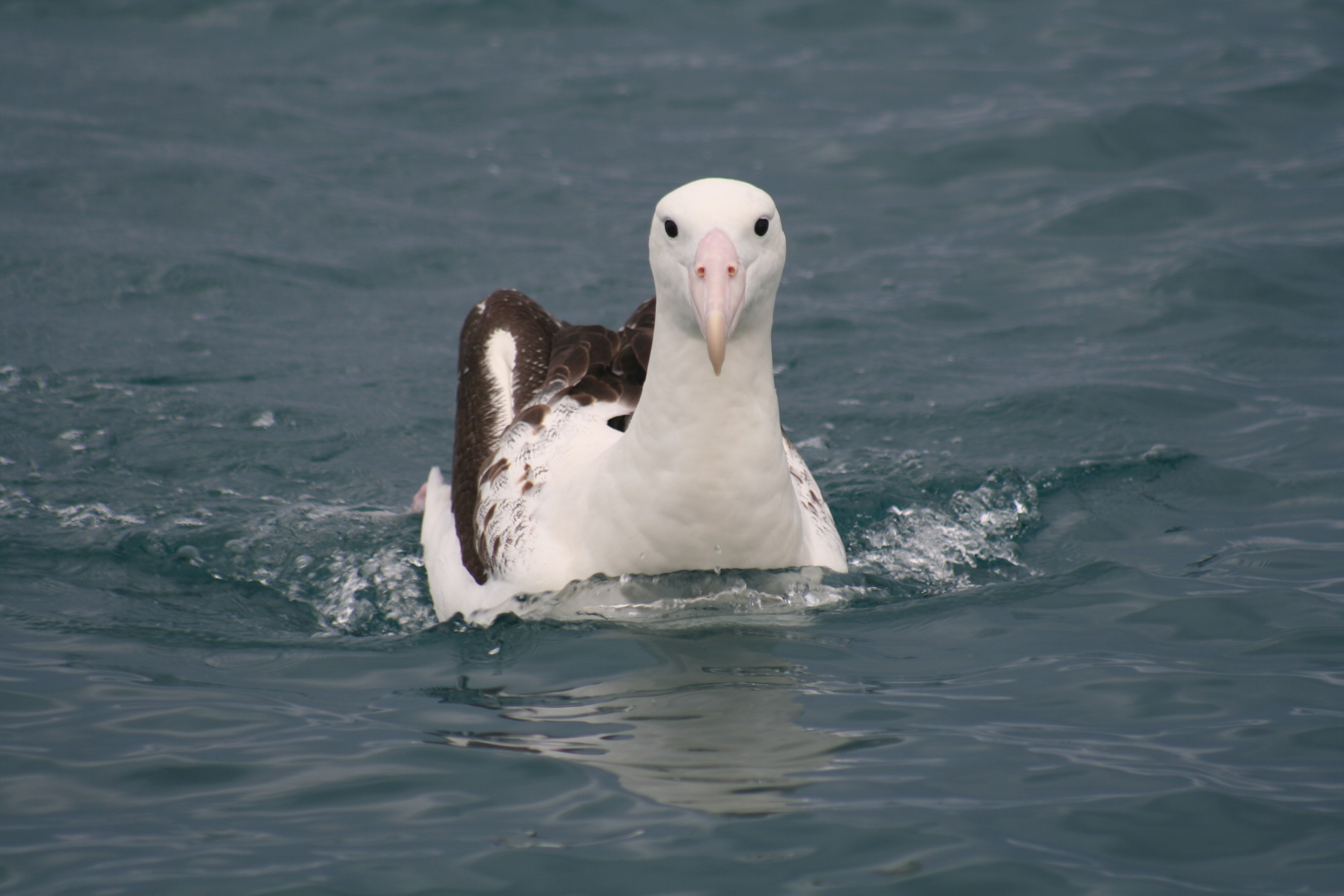
And the bird in question: an Antipodean Albatross off Kaikoura; photograph by Kerry-Jayne Wilson
With thanks to Kelsey Hunter and Sally Paterson of Live Ocean.
John Cooper, ACAP Information Officer, 05 November 2021, updated 12 November 2021

 English
English  Français
Français  Español
Español